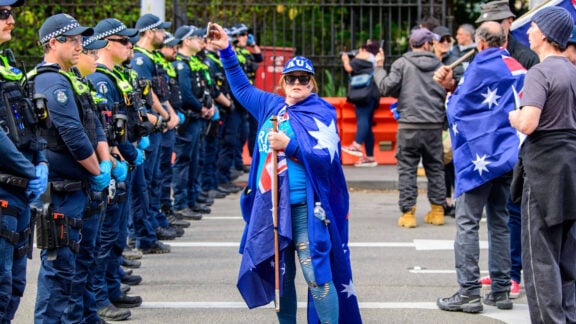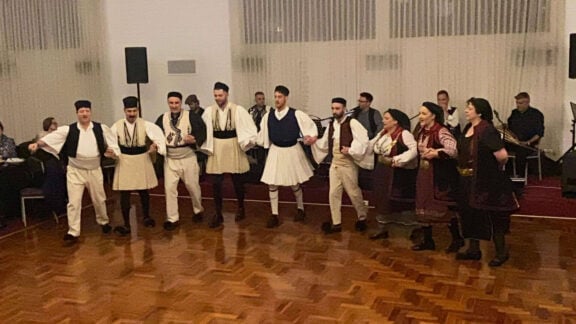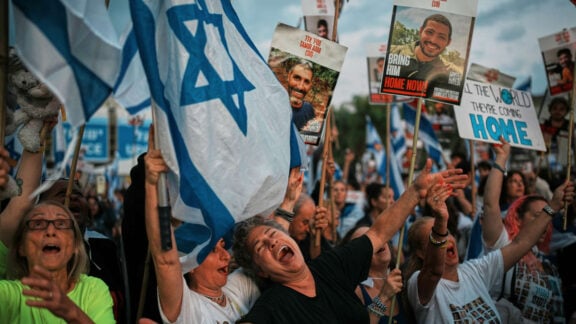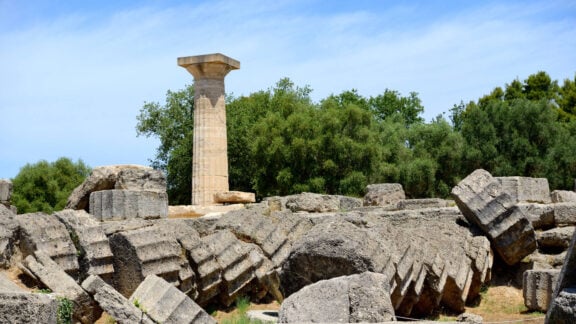A young, first-term premier trying to reform the housing market and tackle gambling harm could usually expect a rosy path to re-election.
But rising living costs, political scandal and a host of senior colleagues heading for the door leave Dominic Perrottet facing an uphill battle to drag the coalition to its fourth successive NSW victory.
Two polls this week suggest the Liberal-National primary vote has dropped to a likely-unwinnable 34 per cent – far short of the 42 per cent that allowed Gladys Berejiklian to form majority government in 2019.
With Labor in the box seat to win on March 25, Australia’s first millennial premier has over past days unveiled proposals to tackle domestic violence and bikie gangs, launched a toll rebate scheme and opened a major section of WestConnex – the jewel in a $113 billion infrastructure crown.
A promise to turn pokies cashless is broadly popular while first home buyer concessions, shared equity schemes and early childhood policy reform target young families and families to be.
Choosing carefully where to be seen and heard, Mr Perrottet’s latest appearances have included the vulnerable electorates of Penrith, South Coast, Parramatta and Bega, lost by the Liberals in a by-election last year.
“We have a long-term economic plan for everybody right across NSW,” he declared this week.
“The key difference between us and Labor is they don’t have a long-term economic plan to deliver on their commitments.
“Under Labor, NSW will stall. We’ll prosecute that case (until the election).”
But Mr Perrottet’s true test will be steering voter thoughts away from past indiscretions that have mounted for the third-term government and its fourth premier.
The father-of-seven’s campaign wobbled out of the gates with a confession he dressed as a Nazi at his uniform-themed 21st birthday party in 2003.
The premier was repentant, with his grovelling apology accepted by colleagues and Jewish leaders.
In 2022 he weathered the first teachers strike in a decade, a protracted but since resolved rail workers dispute and the resignation of two Liberal MPs due to separate criminal and corruption controversies.
Former deputy premier John Barilaro’s appointment to a plum United States trade role had then-trade minister Stuart Ayres heading to the back bench and Labor crowing endlessly about “jobs for the boys”.
Meanwhile, the woman watching over the state’s accounts handed Labor a gift this week.
The opposition had long criticised a complex financial restructuring of NSW rail assets as an accounting trick but the auditor-general’s frank assessment that the creation of the Transport Asset Holding Entity was “not effective … cohesive or transparent” dealt an independent blow to the government’s financial credentials.
Making matters worse, a mix of retirements and preselection losses will mean Mr Perrottet having to watch 13 coalition MPs head for the exits, including ministers Brad Hazzard, Victor Dominello, Rob Stokes, David Elliott and Geoff Lee.
While not astronomical, only one other NSW government – Labor in 2011 – has had more concurrent departures in the past 35 years, says Tallyroom election analyst Ben Raue.
“Labor had 10 to 12 throughout the 2000s. This year is a little bit higher and it is a higher level for the coalition,” he told AAP.
Five seats with new Liberal candidates – Riverstone, Winston Hills, Ryde, Parramatta, Holsworthy – arc across the key battleground of western Sydney and are held by between five and nine per cent.
“That’s where it’s kind of going to play out,” Mr Raue says.
“The polls are indicating there is a very low primary for the major parties.
“The parliament already has quite a large crossbench (11) so Labor has to beat the coalition by a lot more if they want to form majority government.”
Were Labor to fall a few seats short of the 47 needed for a majority, a large crossbench could offer the party options to negotiate supply.
“They wouldn’t be in a position where the Greens hold them over a barrel,” Mr Raue says.
The crossbench could also get a shake-up.
“Teal” independents are trying to take a seat or two from inner-city Liberals, while Greens are targeting coastal seats.
The fractured Shooters, Fishers and Farmers party has meanwhile pledged to run against its defecting lower house MPs, offering the Nationals a path back into rural electorates Murray, Barwon and Orange.
Still, it’s far from a done deal for Opposition Leader Chris Minns.
The teetotalling father-of-three’s decision to largely avoid criticising the government during the 2021 lockdown leaves him unknown to swathes of the state’s 5.6 million voters.
Promises of new schools and hospitals in western Sydney will need to be bankrolled without the Liberals’ go-to of privatising government assets.
Labor is also keenly aware it has not won an election in 16 years while its leader’s political life relies on him retaining his Kogarah seat – the state’s most marginal.
Elsewhere, claims the government’s growing toll road network is a “secret tax on western Sydney” leaves Labor open to attack if it fails to promise to axe or slash tolls itself.
Mr Minns says Labor will back every announcement with modelling by the parliamentary budget office.
“People of this state (will) know that promises made will be promises kept,” he said this week.
“We have a responsible economic program … we will not be relying on privatisation.”
Whether those promises are enough for voters to change the government remains to be seen.
NSW polls open on March 18.
Source: AAP









